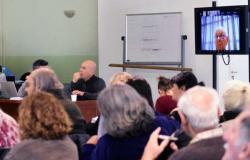Then, geopolitics has made a takeover bid for the economy and we have gone from international order to global disorder, until the pieces fit together again. In this context we must situate the current debate on protectionism. In 2001, the WTO admitted China as a member, unleashing its potential, but without requiring certain reciprocity obligations. Large Western companies saw enormous room for growth for their businesses, but our society lacked a long-term perspective to realize that it was giving up its knowledge to a competitor that played by different rules. China has made very good use of these years to establish itself as a geopolitical and economic power, with a long-term vision, more difficult in Western democracies, which today allows it to lead critical products for the energy transition, such as solar panels, electric vehicles and their batteries. There is the problem.
In short, the pandemic and its derivatives have made us move from pure globalization to block globalization, modifying the supply of companies, which now incorporates a regional bias, to buy from the solvent supplier in the friendly region that does not leave you hanging. . This is known as ‘friend-shoring’, because I need, given what I have seen, that trust and closeness. In a rush, Western companies are trying to establish an alternative channel to Chinese supply, which favors countries like India and Mexico.
For its part, the EU has sought to position itself as the green vanguard, but without having the cards to do so, starting with energy. It has done so, as usual, using regulation, with measures that the market then forces it to review to build on solid ground, with a little less ideology and a little more realism and technology. As a clue, the combustion vehicle seems to be allowed if it uses e-fuel. We have put the cart before the oxen and the image of our ports full of Chinese cars has set off alarm bells.
Just a few weeks ago the Chinese leader visited France. After the gala dinner, Von der Leyen threatened with tariffs if China did not regulate his electric car offensive. Shortly after, Biden, weak in the polls, jumps into the pool with 100% tariffs. After the elections, a more confident president of the Commission launches the measure, which will be finalized after the summer, with a provisional tariff, from the current 10% to 48%, affecting producers on Chinese soil, including BYD and the American Tesla. But European manufacturers fear retaliation from Beijing and prefer to talk about equal conditions, because there are many cross-relations, such as German sales in China or the acquisition of Volvo by Geely.
For sector experts, it is unlikely that the tariff will stop Chinese progress, because they have room to cut and perhaps accelerate Chinese production in Europe, such as that planned in Hungary and assembly in Barcelona. Perhaps many emerging markets will fall into the hands of China, because its exports to Southeast Asia and Latin America are already growing.
Tariffs are imposed on consumers and the idea floats in the air that protectionism masks, but does not solve, the underlying problem, which is none other than that Chinese industry, supported by party planning, has been betting on the car for years. electric and its critical element, the battery, while the European leadership is based on diesel technology and has a long way to go to be able to compete. It is no coincidence that China today produces 80% of solar panels, that it is the leader in electric vehicles and the batteries that make it possible. It all comes from a planned industrial investment with public funds, which the West now denounces.
As Enrico Letta recalls in his recent report, European society feels the need to feel protected. Perhaps that is where the announced measures go, which look like they will be negotiated downwards in the coming weeks and respond more to the need for Europe to project itself as a major international player. In reality, more than tariffs, what we need is a realistic European industrial policy and an international position capable of demanding reciprocity and equal conditions. Without this, the announced tariffs are just fireworks.





